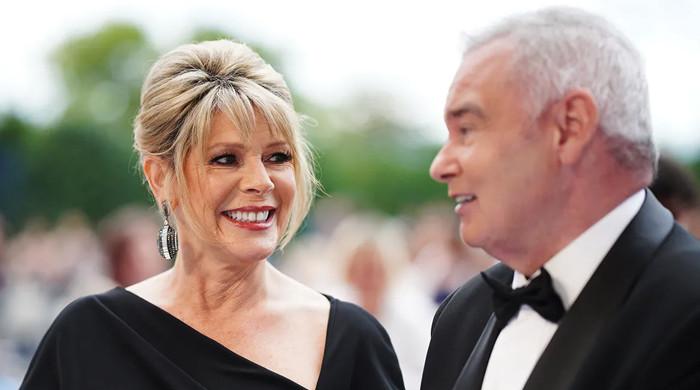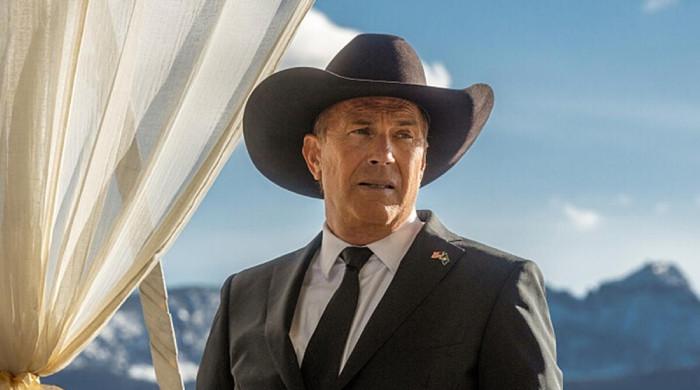“Pachinko,” a beautifully crafted historical melodrama, returns for its much-needed second season, filling in some gaps, resolving loose ends and extending the story even beyond the confines of Min Jin Lee’s 2017 novel. It’s a transitional season, ending with little resolved and holes left to fill, and while it offers all the sensual pleasures of the first season’s performances and production, its share of love and death is very much half a book.
Unlike the novel, which unfolds chronologically, the series, which returns Friday on Apple TV+, alternates between the “present” (Osaka, 1989) and the evolving story that gets us there. Season 1 began in 1915, before protagonist Sunja’s (Minha Kim) birth in Japanese-occupied Korea, and then followed her through her country-girl youth to a romance with the handsome and dangerous Hansu (Lee Minho). An unexpected pregnancy led to a marriage of convenience, later affection, with Isak (Steve Sanghyun Noh), a Christian preacher; together they move to Osaka to join her brother Yoseb (Junwoo Han) and his wife, Kyunghee (Eunchae Jung), where they become Zainichi, the term for Koreans living in Japan, a much-discriminated-for population. (Incidents of prejudice pepper the current season, almost as a reminder of what the first season firmly established.)
That story takes us all the way to 1938. The new season begins in early 1945 (skipping much of the novel), and times are tough as Japan fearfully prepares for an American attack; Sunja and Kyunghee make a living selling kimchi, and cabbage is nearly gone. Sunja’s children, Noa (Kang Hoon Kim), her son with Hansu, and Mozasu (Eunseong Kwon), her son with Isak, have grown up accordingly. Noa, who doesn’t know who his biological father is and takes after his adoptive father, is shy and bookish, Mozasu impetuous and unsuited to study. Isak is in prison, having been arrested last season for social unrest; Yoseb is working at a munitions factory in Nagasaki, which should come as a surprise. But a friendly new character, Mr. Kim (Kim Sungkyu), is nearby and helping, and Hansu, watching them from near and far, will return and join in.
In Season 2, Mozasu (Eunseong Kwon), left, and Noa (Kang Hoon Kim) are a little older.
(Apple)
(The Nagasaki sequence that opens the fifth episode is shot in standard black-and-white, before reverting to color and widescreen as the bomb falls. The ensuing credits omit the usual upbeat shots of the cast dancing to the Grass Roots' “Let's Live for Today” as inappropriate. Understandably so.)
Since nearly all of the 1989 story capital was spent in the first season, showrunner Soo Hugh had to create new material to keep those characters busy while the old narrative caught up. (By the end of the season, they still have three decades to go.)
Sunja (Yuh-Jung Youn) is still living in Osaka with his successful son Mozasu (Soji Arai), who has grown up to own pachinko parlors (a kind of pinball slot machine), and as a somewhat disreputable if popular business, it’s one of the few avenues open to Koreans. (Mozasu himself, a major character in last season, is mostly absent in this one.) Mozasu’s son Solomon (Jin Ha), who went to college in the United States, is in Tokyo, involved in high finance and real estate. In Season 1, he tried to get an old lady out of her house in hopes of putting a golf course on the land and impressing his bosses; in the end, he advised her not to sign the papers, but the current season unfortunately finds him back on that horse, in a complete moral backsliding. (I found the details of Solomon’s business dealings a bit hard to follow, or maybe they just weren’t worth the effort.)
This problematic situation for the authors could be expressed in the old Hollywood formula: “boy meets girl, boy loses girl, boy gets girl, boy loses girl, boy gets (possibly different) girl,” and so on, regardless of whether we are actually talking about boys and girls. It is a familiar problem in the original ongoing series, where new conflicts must be created every year. One hopes that, in time, it will become another chance for redemption: the series is too sentimental, too kind-hearted not to offer him the chance.

Senior Sunja (Yuh-Jung Youn) in “Pachinko.”
(Apple)
And of course, we get enough of Good Solomon to justify our interest, just as we get enough of Good Hansu to make up for his criminality. Parts of Solomon’s story, which includes some unsavory characters, seem constructed as a deliberate mirror image of Hansu’s; perhaps it’s no coincidence that they’re played by the series’ most appealing actors. As for Sunja’s further extratextual adventures, she’ll strike up a friendship with a man at the supermarket that allows for an adorable scene at a Mexican restaurant – something apparently new in Osaka in 1989.
While historical events are acknowledged (World War II and the Korean War are in the first timeline, and the bubble and crash of Japanese asset prices loom on the horizon in the second), the current season focuses on family life and domestic details, even when — or perhaps because — it’s upended. In 1989, Sanju travels alone from Osaka to Tokyo to check on her grandson, who she senses is not well. There’s a charming scene where she chops vegetables alongside Solomon’s Japanese love interest and former colleague, Naomi (Anna Sawai) — I almost wrote “throwaway scene,” but in fact, that naturalism is essential to the series, making the outlandish, even soap-opera-like plot feel real.
And food, often in short supply in the earlier plot, plays an important role: preparing a meal, making a living, making a place for oneself at the table, making a home – most tangibly, in a barn that Sanju, Kyunghee, Noa, Mozasu and Mr Kim occupy at the end of the war. (Hansu’s tragedy is that although he provides support for the family, knowingly or unknowingly, he remains an outsider.) The characters speak of a “life well lived,” which is not at all the same as living well.
Obviously, this isn’t the season to start “Pachinko,” but if you haven’t already, it’s worth starting at the beginning. Even if you watched the first season (and, since you’ve read this far, I’m assuming you have), it might be worth looking back to remember who all these characters are, what they have to do with each other, and what kind of trouble they got into and out of before. And if the new season lacks the expository energy of the first, if it’s more muted in tone, if Sunju isn’t quite the ray of sunshine she once was, her older self will still have a chance to say here that hers was a life well lived.












